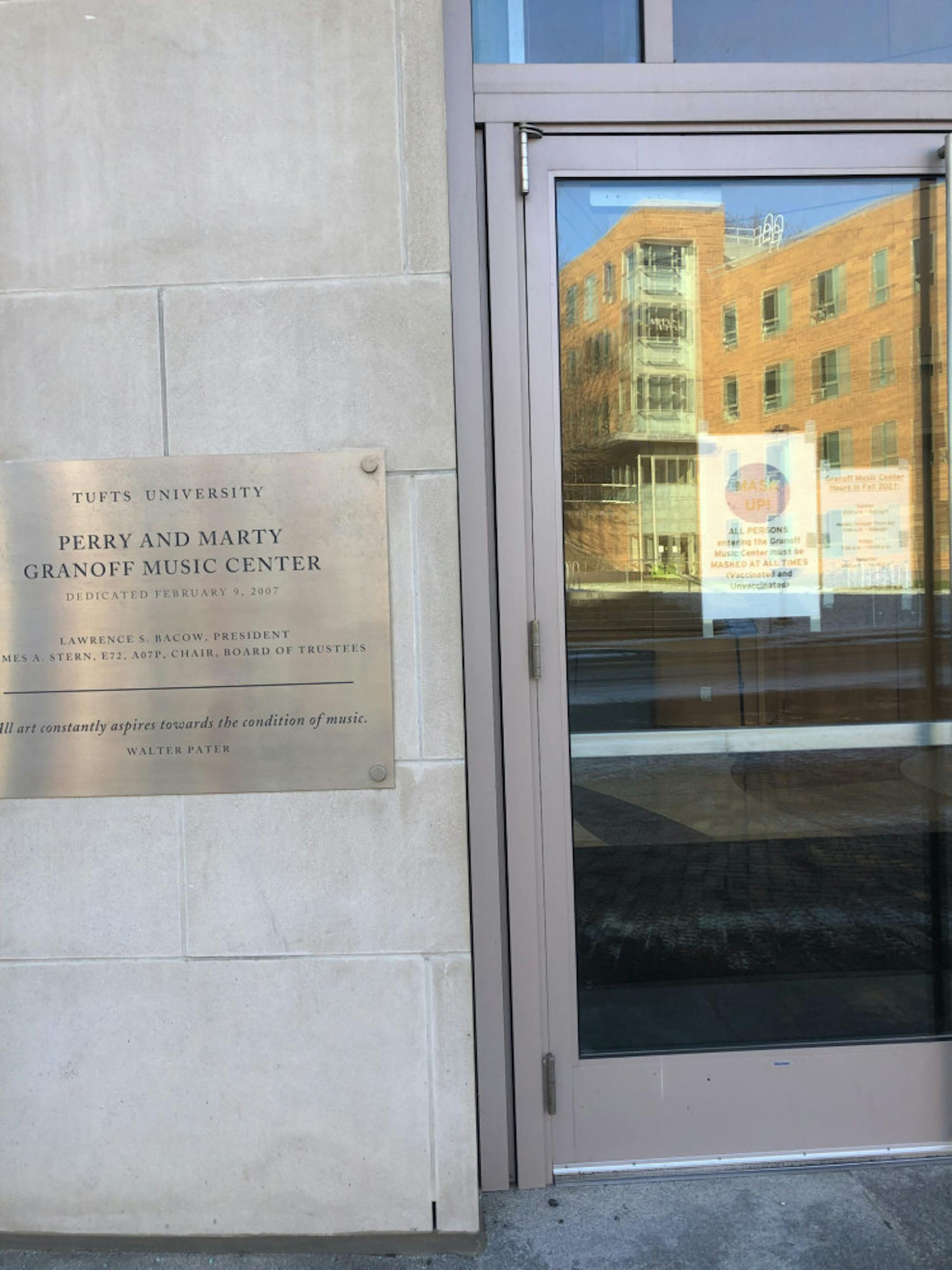The Tufts University Department of Music sent an email on Nov. 5 notifying students that the Granoff Music Center would be altering its policies regarding personal protective equipment. Now, students warned three times for not using proper PPE in the Granoff practice rooms will have their access to the practice rooms revoked until the end of the semester.
Sent on behalf of Richard Jankowsky, associate professor and chair of the department of music, the email explained that the policy change is a response to many violations of masking protocols in the Granoff practice rooms.
"These COVID-19 mitigation rules are in place for everybody’s safety, and they are the only reason that the Granoff Center’s practice rooms are open at all right now, to anybody," the email said. "We need to tell you in the strongest possible terms that this is not acceptable.”
The music department requires that students use PPE in Granoff's practice rooms at all times, even when alone.
Jeffrey Rawitsch, manager of the Granoff Music Center, explained that Granoff has reminders to use PPE posted in practice rooms and has also communicated these reminders to students via email. The music department created the policy of revoking access to practice rooms after three warnings when it observed that its reminders were not working.
“For the longest time we went about it as, 'We’re going to keep reminding and reminding and reminding,'" Rawitsch said. "But at a certain point, we decided that just having the reminders was not enough. We knew that there were some students who we had reminded. It was not the first time that they were hearing from us. So that’s why we decided we needed to do something a little bit more formalized.”
Some musicians and singers use special PPE in order to sing or use instruments without increasing the risk of spreading COVID-19. Madeline Cortesi, who plays the flute and piccolo, has two parts to her PPE. The first part is a protruding mask, and the second resembles a bag over the body of the instrument to protect air from escaping through the keys.
“There’s a little learning curve and it takes some time to figure out how to adjust, how you have to hold your instrument, how your sound's going to sound different and all that, but overall, it’s been fine,” Cortesi, a first-year, said.
Singing and playing wind instruments greatly increases the risk of COVID-19 transmission if the musician is not using PPE. Rawitsch confirmed that using PPE is absolutely essential for COVID-19 mitigation.
“There is a potential for greater aerosolization of viral particles because of the process that the body goes through to generate sound in those ways,” Rawitsch said. “We’ve been supplying our students with that PPE, free of charge."
Music rooms serve an important role to many music students. Ava Delaney, a first-year in the opera ensemble, uses the practice rooms three to five times per week.
“[The practice rooms are] a great resource, especially because since I sing opera, it’s very loud and I don’t want to disturb my roommate or the other people in my dorm,” Delaney said.
Cortesi shared a similar sentiment about the usefulness of the practice rooms.
“It’s important on an individual level to musicians because it’s important to feel like you are progressing,” Cortesi said. “I’m just glad I have the opportunity to have access to the practice room and the music department with the rest of my courses this year.”
The new policy is not meant to be interpreted as harsh, Rawitsch said, but rather as a measure to ensure the safety of students.
“The purpose of the policy is not to be punitive and bar people from using the building," Rawitsch said. "We spent enough time not making music in the music department during COVID. We're thrilled that we're able to even do it at all based on the ever-evolving university policies from the infectious disease control director.”
Some students see the policy as a necessary change, although there have been some negative opinions toward it.
“A lot of people felt that it was very extreme to revoke usage of the practice rooms, and I do kind of agree,” Delaney said. “But at the same time ... if you really feel that strongly about the PPE, no one is forcing you to come to the practice rooms ... maybe it's annoying in practice, but it's designed to keep the community safe.”
According to Rawitsch, the policy has been very effective.
“We need to do it for the health and safety of everybody who uses the building, and I will say compliance with masking has ... been very good since then,” Rawitsch said.






